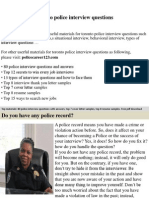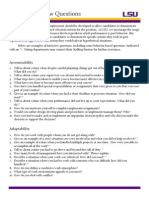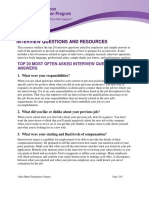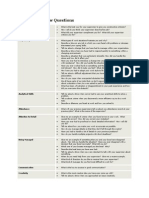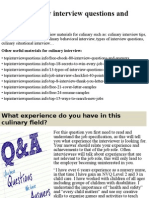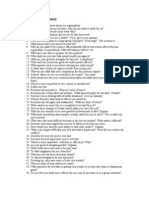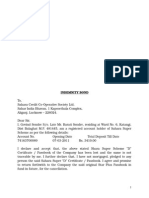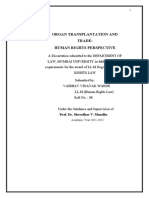0% found this document useful (0 votes)
883 views17 pagesInterview Questions
Here are potential responses to common interview questions for the role of correctional officer:
1. Tell me about yourself:
"I'm a motivated, safety-conscious individual with 3 years of experience as a security guard. In my free time I enjoy staying active through hiking and team sports. I'm pursuing this career to utilize my communication and de-escalation skills to maintain a safe, rehabilitative environment."
2. Why do you want to work as a correctional officer?:
"I'm passionate about rehabilitation and public safety. I want to help inmates transition back into society by treating them, and enforcing rules, respectfully. The varied responsibilities also appeal to me."
3. What do you want
Uploaded by
Hope Eamiguel DoronCopyright
© © All Rights Reserved
We take content rights seriously. If you suspect this is your content, claim it here.
Available Formats
Download as DOCX, PDF, TXT or read online on Scribd
0% found this document useful (0 votes)
883 views17 pagesInterview Questions
Here are potential responses to common interview questions for the role of correctional officer:
1. Tell me about yourself:
"I'm a motivated, safety-conscious individual with 3 years of experience as a security guard. In my free time I enjoy staying active through hiking and team sports. I'm pursuing this career to utilize my communication and de-escalation skills to maintain a safe, rehabilitative environment."
2. Why do you want to work as a correctional officer?:
"I'm passionate about rehabilitation and public safety. I want to help inmates transition back into society by treating them, and enforcing rules, respectfully. The varied responsibilities also appeal to me."
3. What do you want
Uploaded by
Hope Eamiguel DoronCopyright
© © All Rights Reserved
We take content rights seriously. If you suspect this is your content, claim it here.
Available Formats
Download as DOCX, PDF, TXT or read online on Scribd
/ 17




